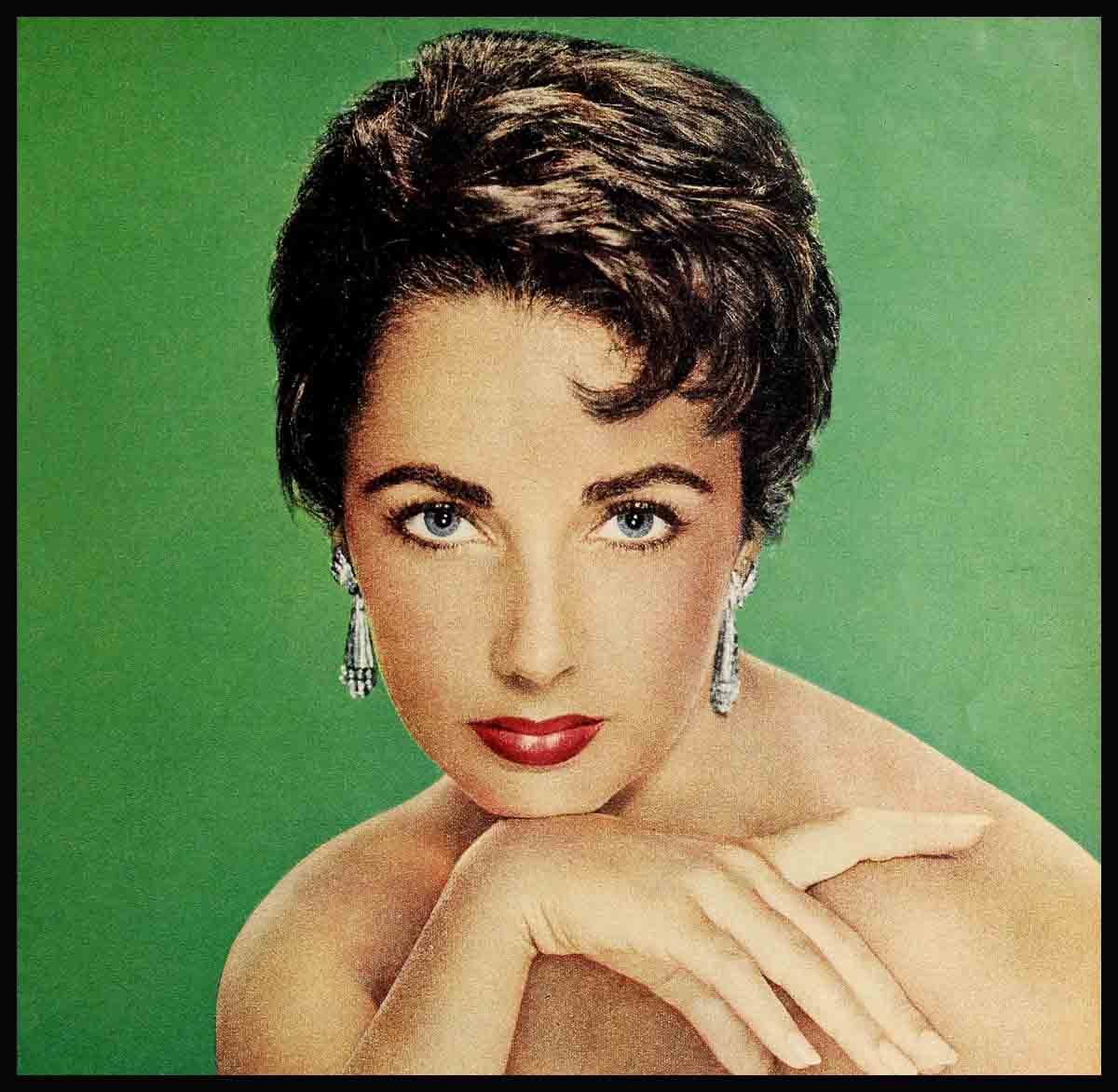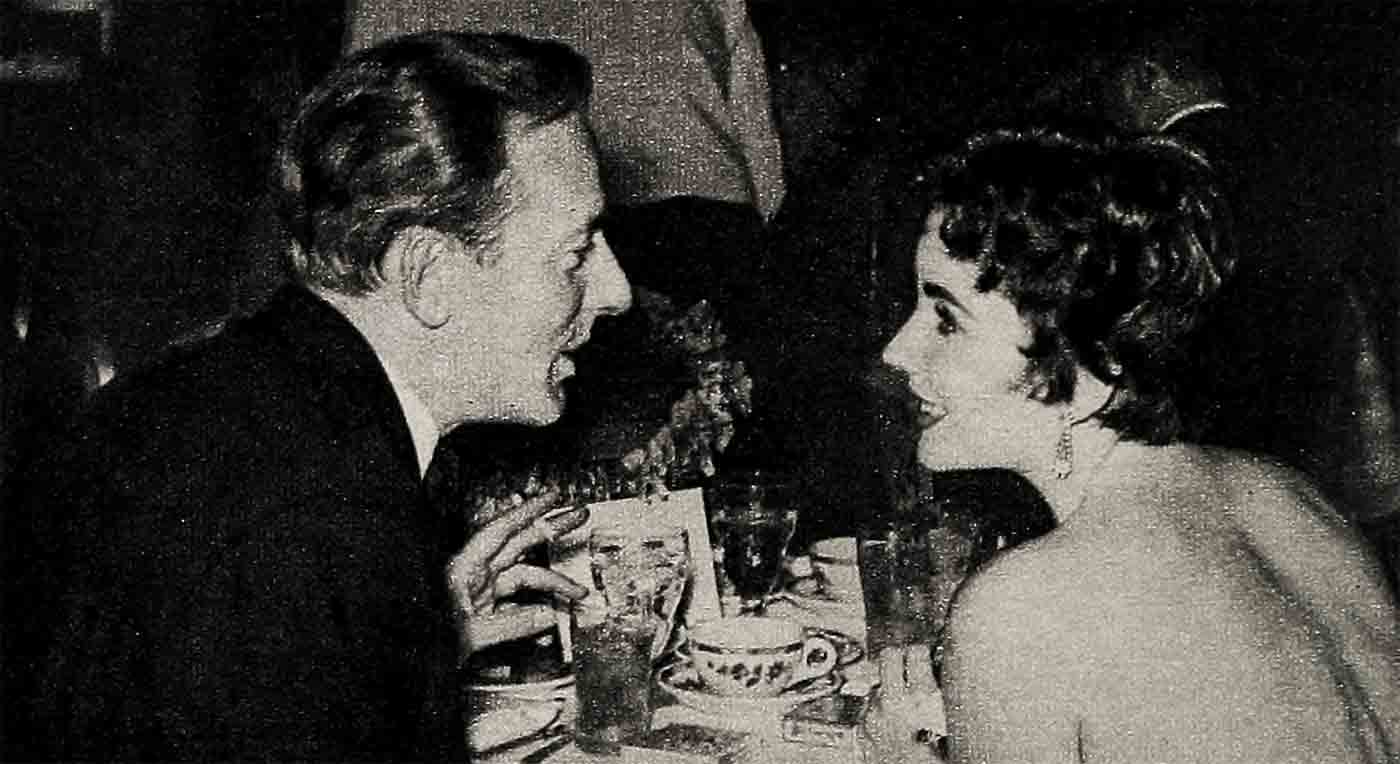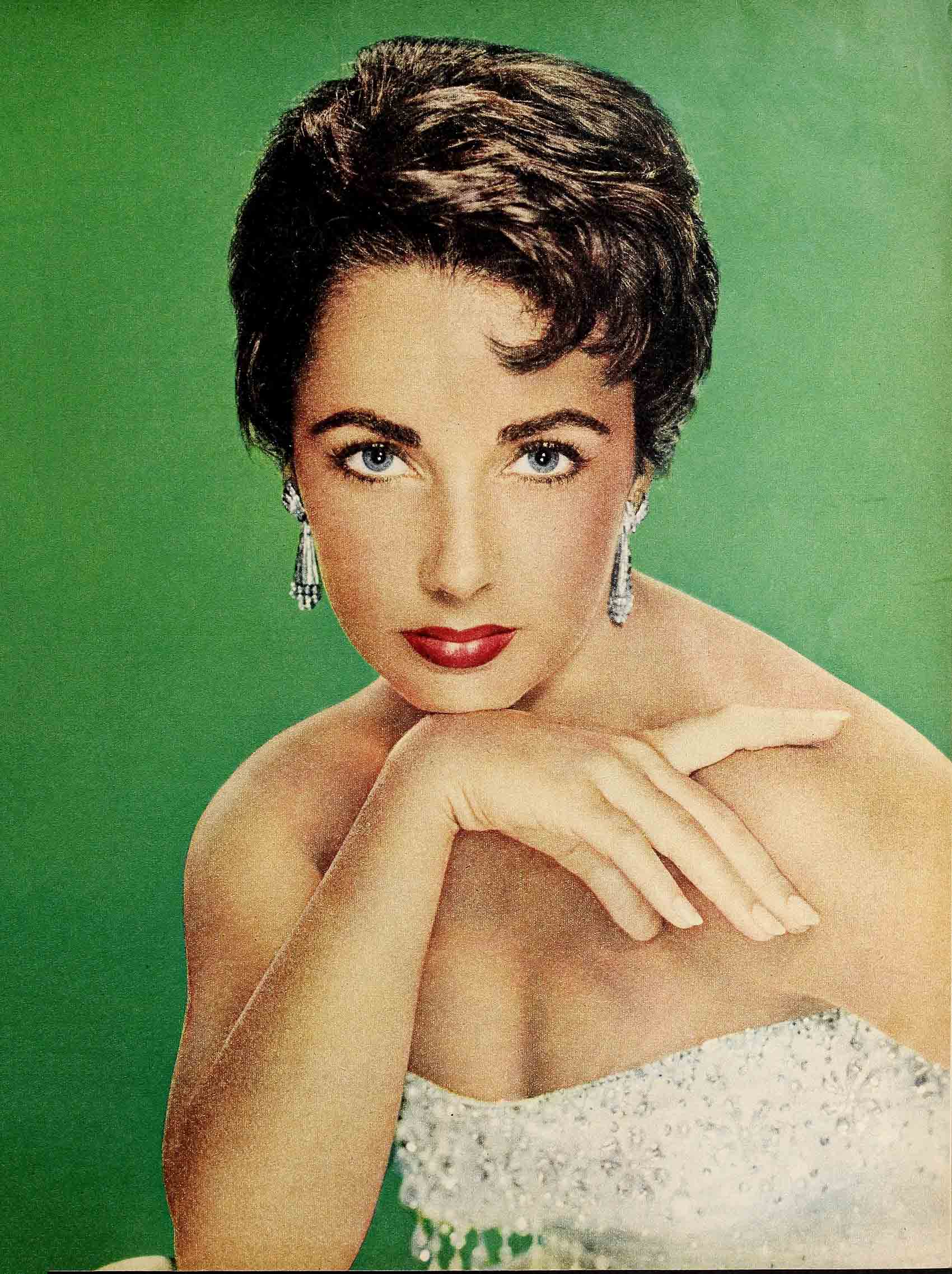
Elizabeth Taylor’s Secret Fight For Life
For two days it was touch and go whether Elizabeth Taylor would live.
On February 27 she gave birth to a baby boy, born by Caesarean section. He wasn’t due until March 10, but Liz wanted him on her birthday, and Dr. Aasberg, who had delivered her first child, gave his consent.
The doctor anticipated no trouble from the actual birth, and encountered none—except that Liz’ blood count dropped. Immediately after the birth, she was given a blood transfusion. It was an emergency measure. That was the start.
The next day Liz insisted that she felt well enough to see her new son. They wheeled her down to the nursery, because Christopher Edward was in an incubator. He wasn’t in danger at any time, but the incubator was prescribed as a precautionary measure; once, when taken out of it he turned blue and had to be put back at once. He had weighed only five pounds, twelve ounces, at birth, and his weight dropped soon after. The nurse took Chris out and showed him to his mother. Liz beamed. Then she was taken back to room 367, where Mrs. Underwood, her nurse, made her as comfortable as possible.
The next day the real trouble began.
Liz Taylor never has been a strong girl. She has suffered over the years from a variety of ailments, including anemia. Pregnancy places strong demands on the bone marrow—where blood cells are created—and Liz’ body was unable to meet these demands adequately. The supply of new blood cells was insufficient. The day after she saw her son she grew light-headed and dizzy. She felt weak and fragile, she seemed completely without energy. She lost strength rapidly.
The telephone rang in her room and she could hardly lift the receiver. It was a friend. “How do you feel, darling?”
“Terrible,” Liz said. “Terrible and weak.”
The blood seemed to be draining out of her face; she became frighteningly pale. She grew even weaker and refused all nourishment. A blood count was taken. Her haemoglobin content was down to fifty-five per cent.
Dr. Aasberg ordered an immediate blood transfusion. Liz had that. Then she had liver injections. It was not pleasant; Liz hates needles.
The next day she was not quite so weak but she was terribly depressed. She had not bounced back as hoped. She seemed completely inert, and was given a drug to make her feel a little more cheerful. Then they took another blood count. It was still too low.
“Prepare Mrs. Wilding for another blood transfusion,” Dr. Aasberg said. Mike Wilding, who had been with his wife every day, knew real fear. The hospital staff buzzed worriedly.
They gave Elizabeth another pint of blood. And this was the one that brought her through.
After she had slept for a while, another blood count was taken. The haemoglobin content had gone up. It was seventy-five per cent, approximately normal.
Mike breathed again. Little Christopher Edward, who was out of the incubator after two days, was pronounced fit by Dr. Jurgensen, the pediatrician, and doing well on his formula. Dr. Aasberg replied to all questions about Liz, “Fine. Everything’s satisfactory.” And Liz began to recuperate slowly, because she had been a very, very sick girl. But the crisis was over.

Her first confinement had kept her in Santa Monica Hospital for five days. This time she was there for twelve. Toward the end of her stay Dr. Johnson, a plastic surgeon, removed some tissue which had grown up around her vaccination scar. Mike was with her constantly. He brought news of little Mike, of the English nanny taking care of him, of Peg Rutledge, Liz’ secretary. He said nothing of the fact that he had been having severe trouble with his back, that it gave him more and more pain, that he might have to have an operation Liz had been beside herself with worry when, during the filming of The Glass Slipper, Mike had slipped a disk in his back. Now he said nothing, but he was seeing a doctor frequently.
A nurse at the hospital was asked about Liz and Mike as a couple. After all, there had been rumors.
“I’ve never seen a more devoted couple,” she said. “Mr. Wilding would come every day a little after lunch. He would spend all afternoon and all evening with his wife. She had a television set in her room and they would take dinner together and talk and then watch a program.
“Their devotion wasn’t obvious. I mean it wasn’t ostentatious. But from the way they spoke to each other and looked at each other, you could tell that they’re happy and in love. We couldn’t get him out of her room until ten o’clock every night. ’m sure he spent about eight hours a day with her.
“I remember the day Mrs. Wilding was going home. Her husband had arranged for this big limousine from MGM to fetch her.
“Dr. Aasberg was around, and he loves to tease. He said, ‘Elizabeth, there are hundreds of reporters downstairs, and when Mike wheels you out of the elevator, I want you to give them a big smile.’
“Mrs. Wilding shook her head and said, ‘You’re kidding, and of course he was. But she surely looked beautiful sitting in the wheel chair, that little baby cuddled in her arms.”
So the tragedy had been averted, and a healthy, though weak, Mrs. Wilding took her new baby home. But her entire pregnancy had been marked with trouble.
When she discovered last summer that she was going to have a second child, Liz told no one but Mike. They shared their secret happily for weeks, taking long rides in their Jaguar, searching for a larger house. They didn’t care whether Mike, Jr., in the exciting process of saying his first words, would have a brother or sister—either would do fine. They were very happy.
Hollywood should logically have guessed what was in the offing. Why were the Wildings looking for a larger house when they had just finished furnishing their hilltop one? But no one guessed. In the fall, trouble began. Liz hurt her leg and it was slow to heal. She came down with hepatitis and nervous tension. At this time a studio hairdresser did suggest the possibility. “Maybe she’s pregnant again?”
“If Liz is pregnant,” came the answer, “she’s one girl who’ll show it in a hurry.”
The first time Liz was expecting, she certainly had. She had gained forty pounds and had had a miserable time trying to get back to 117 after Mike was born. No one dreamed that she would be able to hide a second pregnancy.
But this time she gained only nine pounds during the entire nine months. She carefully followed Dr. Aasberg’s instructions and when the coming event was officially announced many of the Wildings’ acquaintances were amazed.
The announcement, however, explained more than Liz’ nervousness. It explained the extra solicitude with which Mike had been treating his wife; it explained Liz’ even greater than usual dependence on her husband. Without a blessed event in the offing, the Wildings are one of Hollywood’s happiest couples. With, they are absolutely inseparable.
When Mike’s parents were ill in London several months ago, and the death of one was imminent, Mike flew home. Alone, Liz grew worried and fretful. A few days after he left, she packed up and followed him across the Atlantic—and she was six months pregnant at the time.

While he was making The Glass Slipper with Leslie Caron, she lunched with him every chance she got. One day, on the set, he slipped the disk in his back. Mike may have minimized the accident at first, but Liz worried for two. That was a trouble they haven’t surmounted yet; surgery may still be necessary.
But about other things, Liz didn’t worry. During her pregnancy, the Wildings, who have a habit of lavishing expensive presents on each other, even though they have bought, built and furnished two houses in two years, ran a little short of money. Money never has been a source of anxiety to Liz. She spoke to her agent, shrewd and charming Jules Goldstein. Jules drove down to the studio one afternoon and had no difficulty whatsoever in making a deal. As a result, Metro paid Liz her regular salary all during her pregnancy. In exchange, she granted the studio a one-year extension of her contract.
All in all, it was a complicated pregnancy, but no one anticipated the truly terrifying climax. When it was over, the Wildings were emotionally as well as physically exhausted. But the story has a happy ending.
When Liz took Christopher home, she was prepared to find some natural resentment on the part of Mike, Jr. Many first children are jealous of the second. To everyone’s joy, little Mike adored Chris from the start. He considers him a riot.
No doubt that reaction is at least partly due to the fact that Mike, Jr., is still getting his share of adoration—and justfiably. He is one of the most charming children in the film colony. He’s bright, full of life and spirit—and yet remarkably obedient. Tell him even to go to bed and he trots off without a murmur.
As for his mother, her health restored, she’s one of the most contented young women in town. The other evening she and Mike were invited out to an elaborate Hollywood party.
“Want to go?” she asked Mike.
“How about you?” he countered.
“I’d rather stay home with all my men,” Liz said. “Let’s just have a couple up for dinner.” So they invited Dr. and Mrs. Aasberg and made an occasion of it by serving Dover sole, a favorite of all four.
After dinner they chatted in the living room. Presently Liz Taylor rose and walked to the picture window overlooking Beverly Hills and Los Angeles.
Dr. Aasberg joined her. “How’s my girl feeling tonight?” he asked.
Liz turned her back on the scene below and looked around the room. “Right now,” she said, “I am the happiest, luckiest girl on earth.” Having come close to death and having been restored to her full and happy life, she has every reason to mean what she says.
THE END
—BY RICHARD MOORE
It is a quote. MODERN SCREEN MAGAZINE JUNE 1955




